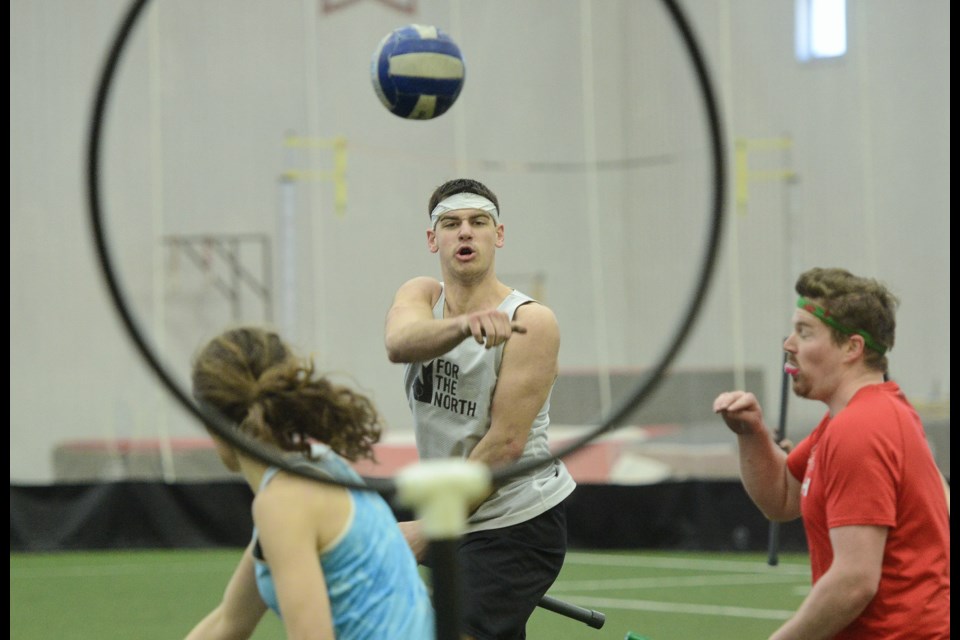They’ve heard all the jokes: Where’s your broom? Slytherin or Griffindor? Where’s Harry Potter?
But for the 30 young people who came to Guelph on the weekend vying for a spot on Canada’s national team, the sport of quidditch is serious business.
The team currently being chosen will represent Canada at the 2018 world cup in Florence, Italy, this summer.
“I’d never even read a Harry Potter book,” said Denver Staines, 22, who began playing quidditch when he came to the University of Guelph five years ago.
“There’s a tonne of people that still think it’s just a bunch of nerds playing like the Harry Potter movies.”
Staines picked the sport at random, looking to meet some new people and get some exercise
“I’d seen the movies, but I didn’t know how they played it in real life,” said Staines, who was just looking to meet some people and get some exercise when he started playing.
“But when you actually get out and watch a game and see the intensity and see people diving on balls and everything, you can see that it truly is a competitive sport.”
The sport was created by author J.K. Rowling, a game played in the Harry Potter books and movies, with wizards and witches at Hogwarts flying around on broomsticks.
The sport was adapted for real play by American university students in the mid-2000s and has spread around the world, mostly on university campuses..
At the upcoming world cup in Florence there will be over 30 different countries represented.
Canada finished fourth at the last Quidditch World Cup and finished third the previous one.
The game seems a little chaotic to the untrained eye.
Seven players from each team on an oval pitch, the purpose to throw a ball akin to a slightly deflated volleyball through one of the opposing team’s three hoops. All the time keeping a ‘broom’ between their legs (players used pieces of plastic pipe on the weekend).
There are a several rules and roles that make it much more complex, but the bottom line is the same as most team sports: scoring more than your opponent.
The game has become popular on university campuses. It’s cheap, fun, good exercise and co-ed.
Jill Staniec, membership director with Quidditch Canada, said the sport is growing worldwide.
“Especially in Asia,” Staniec said. “Uganda is also expected to make it to the worlds this year.”
The first Team Canada was 2007.
“We’ve been doing what we can to help it grow at all levels,” Staniec said.
“Quidditch is definitely more popular at the college and university level. That’s how it started in the United States and that’s how it’s spread. But there are a lot more older and younger players nowadays.
“People play it at university, then they graduate and want to keep playing so start clubs in the community.”
The Canadian national team receives no funding and has to fundraise to attend the world cup.
At the weekend tryout there were people from four provinces, all paying their own way to Guelph.
More information and links to support the team can be found at www.quidditchcanada.com.
